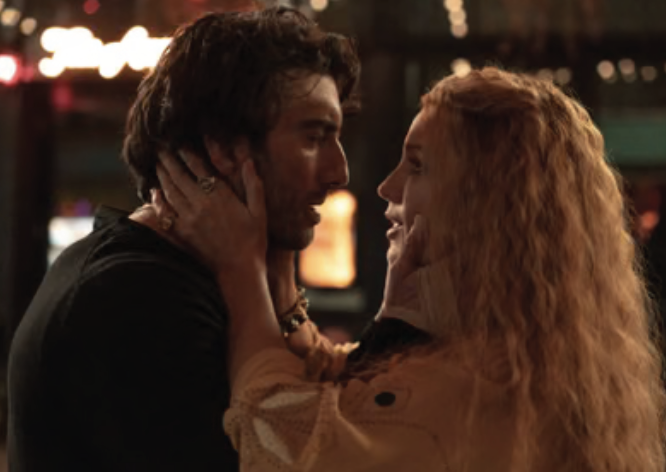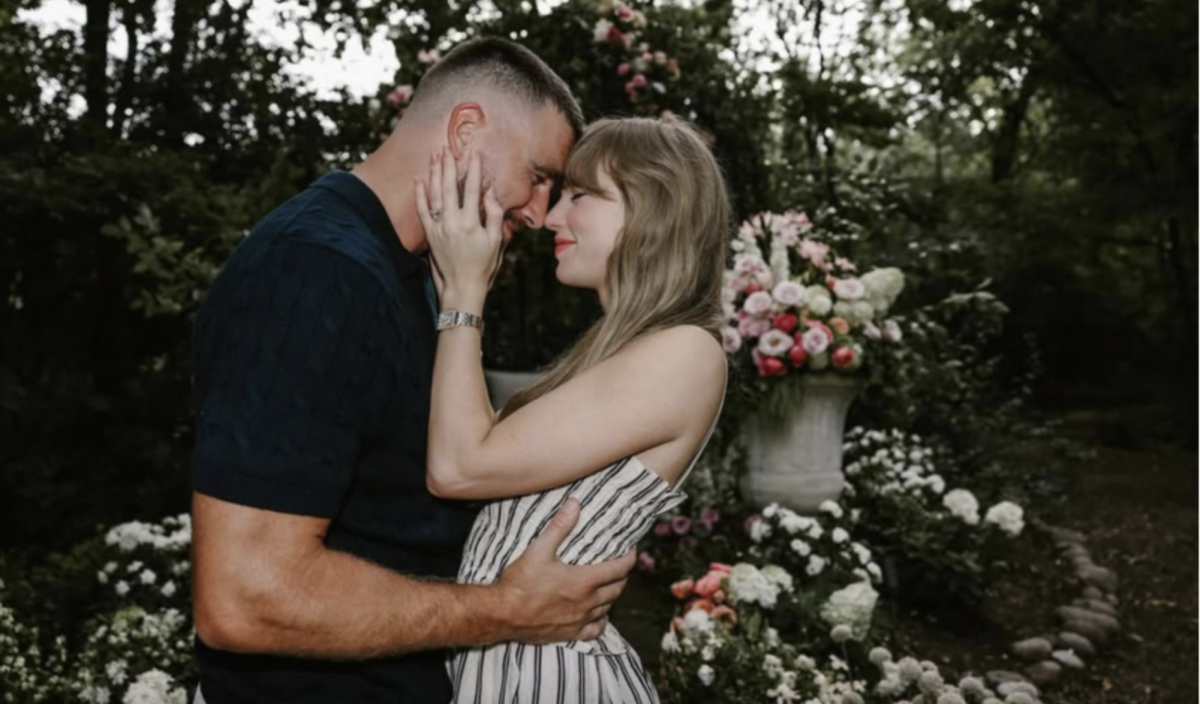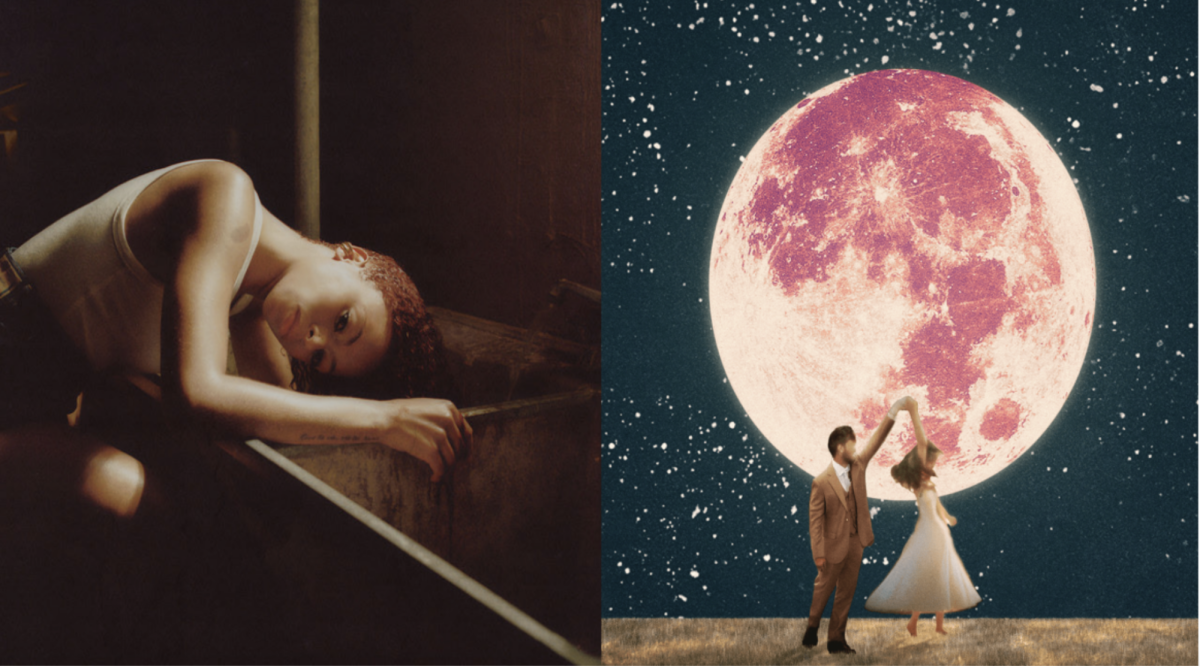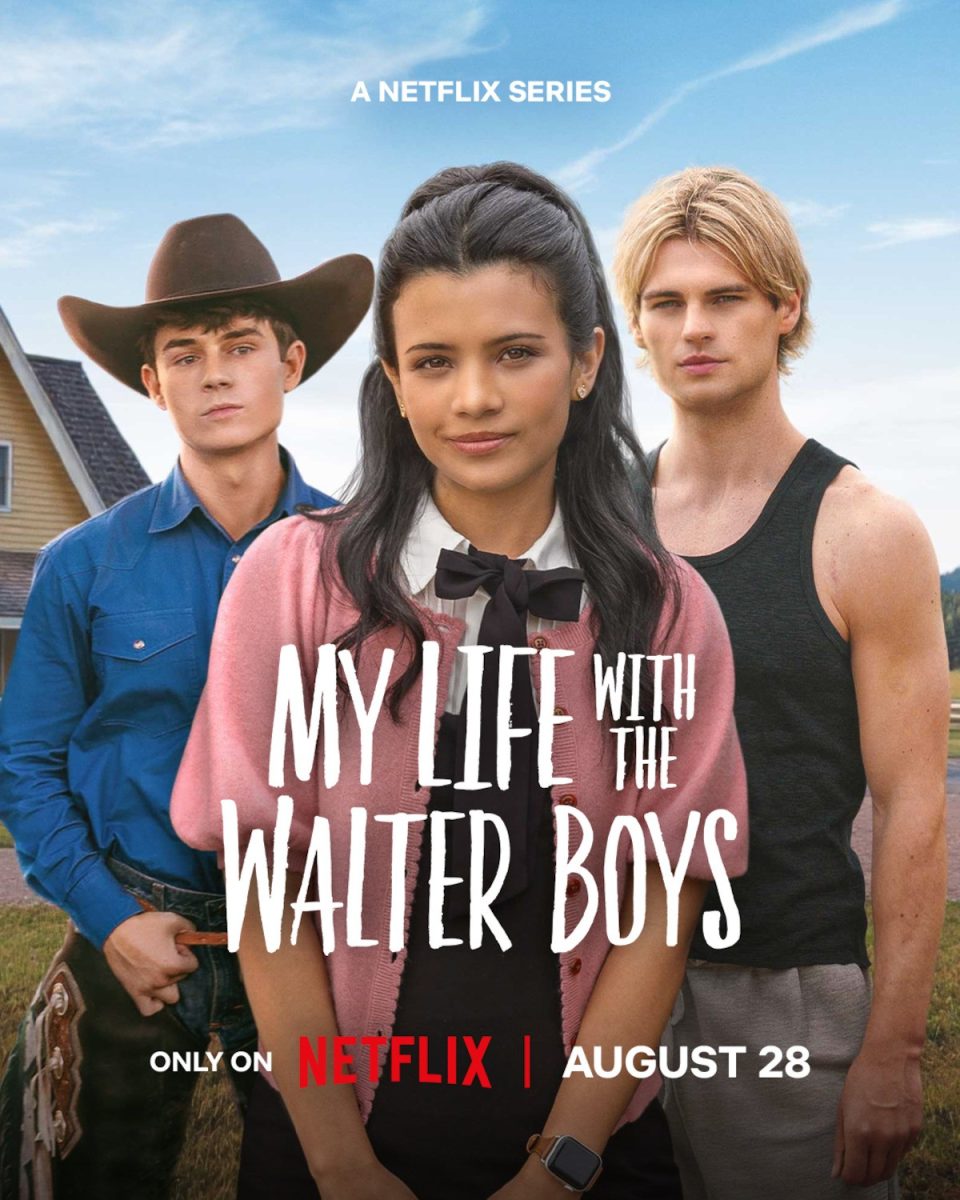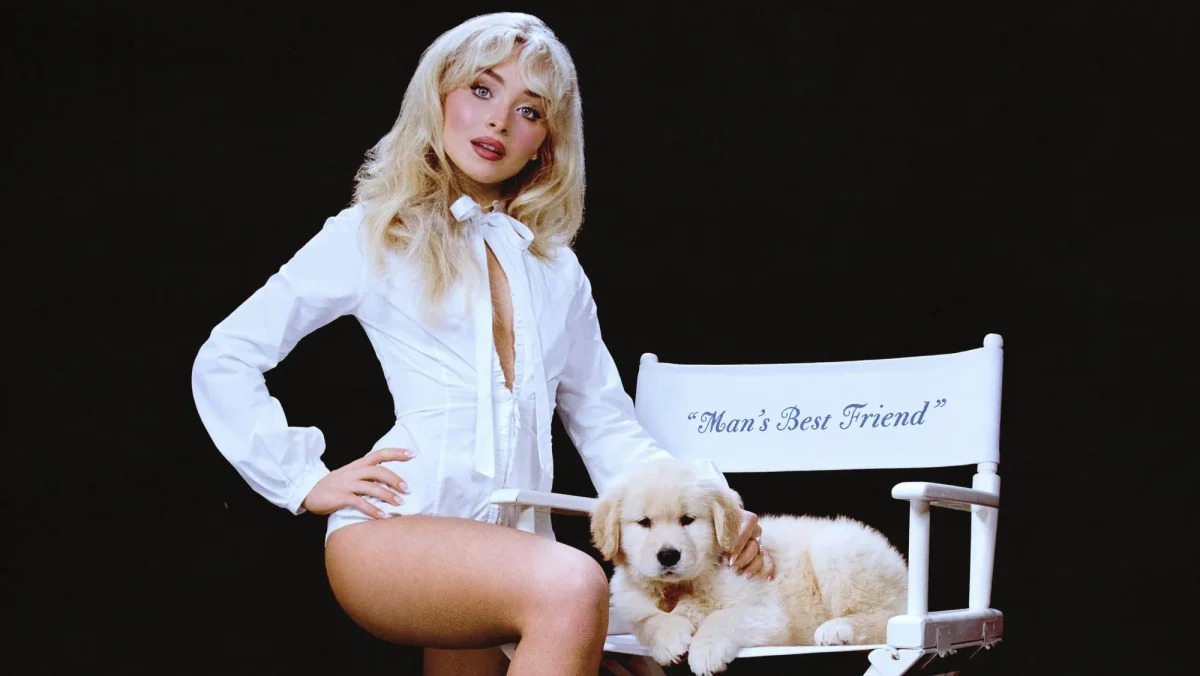“It Ends With Us,” the long-awaited screen adaptation of Colleen Hoover’s novel was released on August ninth, starring Blake Lively as Lily Bloom, Justin Baldoni as Ryle Kincaid, and Brandon Sklenar as Atlas Corrigan. The movie showcases themes of domestic violence; however there is much debate as to whether or not the film–which is tangled in drama–really speaks to the sensitivity of the topic.
The story begins with Ryle and Lily meeting on a rooftop, and as the film progresses we see their relationship grow. However as Lily and Ryle become closer, the viewer becomes accustomed to some of Ryle’s violent tendencies, and Lily’s marriage starts to become reminiscent of the abusive one her mother had. Despite vowing as a child to never be in the same situation as her mother, Lily quickly realizes how hard it is to leave someone that you love, even when they are hurting you.
The film depicts the complexity of Lily’s and Ryle’s relationship very well, exploring how Ryle’s anger and jealousy could push him to take out his emotions on Lily. Through the different points of view shown in the movie, each character’s mentality is shown and “We see Lily trying to rationalize the actions of her abuser, not wanting to believe that the person she loves is actually dangerous,” says Isabella Giraldi (’27). While the complexity of Lily’s relationship with Ryle is well depicted along with their multifaceted characters, other elements of the story seemed to take away from the deeply emotional themes of the movie.
Instead of the focus of the movie being on Lily’s evolution and relationship with abuse, the audience is shown a story framed and marketed as a love triangle. At its core, It Ends With Us is a story about gender-based violence, but this theme gets lost as Atlas becomes a more prominent love interest. At certain points, Lily’s connection with Atlas can overshadow the toxicity of her relationship with Ryle, making a movie that is really about abuse about a story between long lost lovers.
This detachment from the theme is also apparent in how the film was marketed. During press interviews, Lively promotes the movie as a romcom, inviting viewers to “Grab your friends, wear your florals and head out to see it.” While this approach could be viewed as a way of promoting solidarity for victims of abuse, Lively’s other interviews seem to convey the idea that she is more invested in the romantic aspects of the film rather than the ones that are rooted in important issues.
Aurelia Apfaltrer (’27)remarked that “the ideas were conveyed well by the actors in the movie, but offscreen some of the actors did not address the issue well.” In comparison to her co-star Justin Baldoni, who has continuously spoken out about the topic of domestic violence and has even given a Ted Talk on the topic, it seems as though Lively is not treating this topic with the degree of dignity it deserves.
The film clearly communicates the way that “abusive relationships are not straightforward, and that decisions may not seem black and white for people in these situations,” says Bella Vitale (’27). However, the focus on a love triangle in a story about domestic abuse and the insensitive strategies used to market the movie are ultimately what makes the message of “It Ends With Us” confusing.



